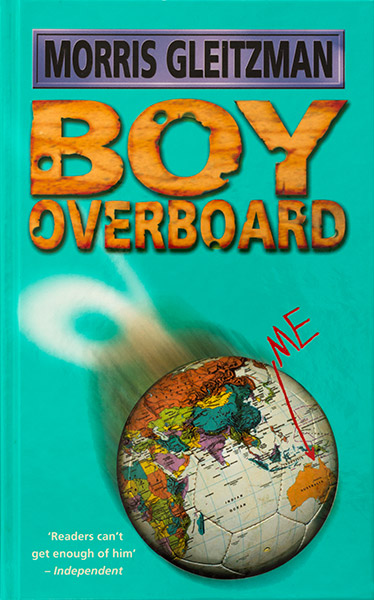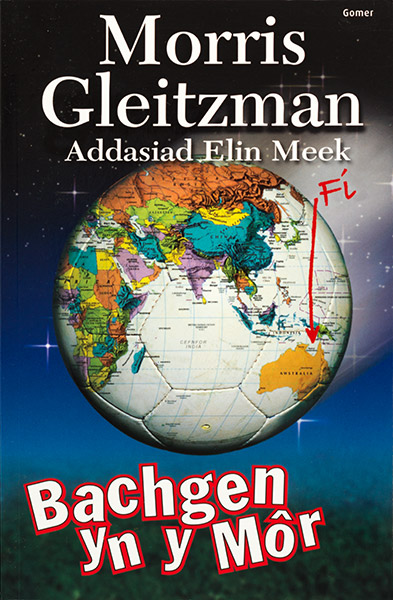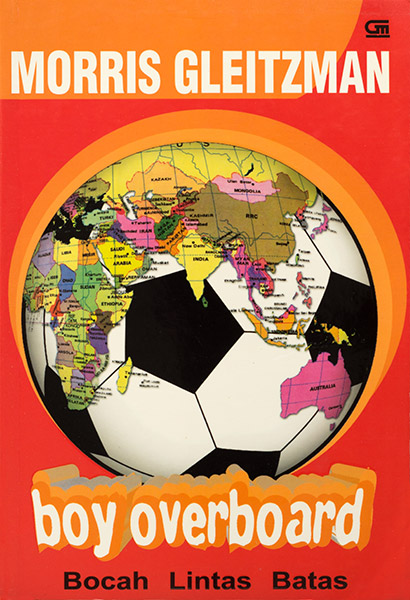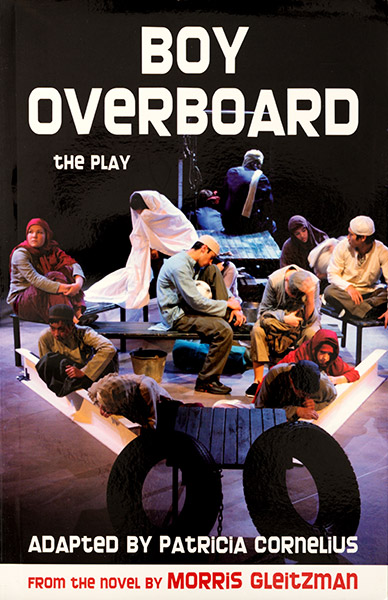I’m Manchester United and I’ve got the ball and everything is good. I can’t even hear any explosions. Which is really good.
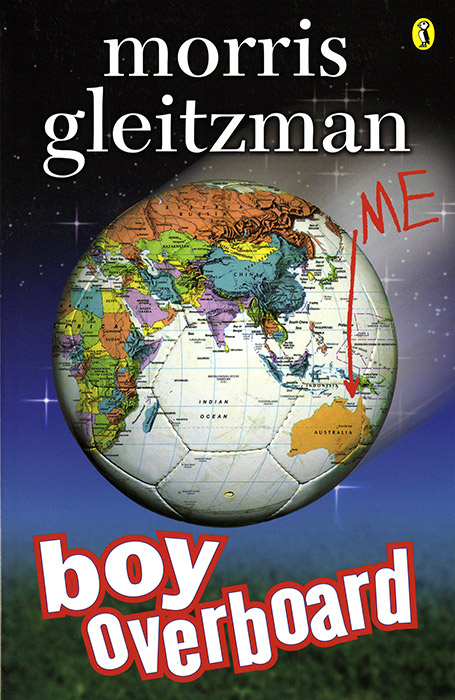 All my characters first appear in my imagination. The essence of their story, what happens in their thoughts and feelings as the story unfolds, the ways the characters change by the end of the story, everything grows out of that meeting. For me it’s mostly an internal process.
All my characters first appear in my imagination. The essence of their story, what happens in their thoughts and feelings as the story unfolds, the ways the characters change by the end of the story, everything grows out of that meeting. For me it’s mostly an internal process.
But not entirely. Usually characters appear in my imagination unexpectedly, seemingly for their own reasons. But sometimes I go looking for them. When I do it’s often because of something that’s happening in the outside world.
Which is how it was with Jamal and Bibi and Boy Overboard. For weeks I’d been seeing small overcrowded boats on the TV news. Back then we didn’t know much about who was on those boats, and the government didn’t seem to want us to. News cameras were kept at a distance. We never saw interviews with the people. Just far-off glimpses.
Certain government ministers and media commentators had plenty to say about them. They were criminals, we were told, health-risks, cheats, queue-jumpers, and some of them, it was claimed, were probably terrorists.
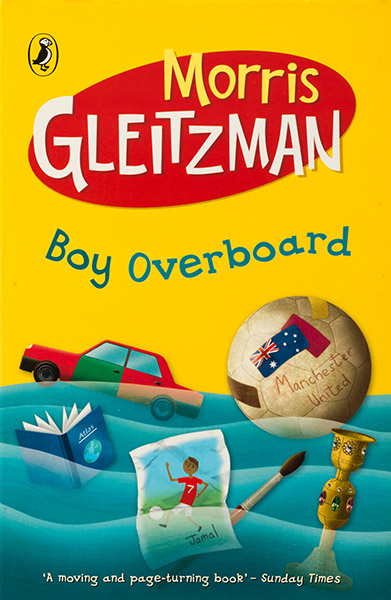
UK cover
Big and scary accusations. But still we weren’t getting to meet any of the people ourselves. No chance to form our own opinions.
Gradually I realised we were being told a story, a very familiar story. I call it the Nameless Faceless Fear story. There’s always a monster or a maniac or an evil presence in this type of story, one we never see up close. We’re never told its name or its favourite TV show or what it likes to have for breakfast. It’s kept at a distance so we have to fill in the details in our imagination, and there’s nothing like our imagination to make things scarier.
Which can be lots of fun in the dark in front of a movie screen or curled up late at night with a scary book. But I felt it was very unfair of the government and certain media commentators to tell this type of story about people who seemed pretty scared themselves as far as we could glimpse, and miserable and in danger.
So I decided to tell a different kind of story. A sort of antidote to the nameless faceless fear one. A story where the people on the boats have names and faces, and as we get to know them, thoughts and feelings and hopes and dreams and grumpy moments and anxious moments and loving moments.
It was the first time I’d written a story partly set in a place I’d never been to. Afghanistan was a violent dangerous place then, and in many ways still is. But most of its people are ordinary families who want to live the same peaceful loving lives we all do.
I was lucky enough to meet such a family. They had come to Australia as refugees, had been locked up in a detention centre in Western Australia for two years, and then released. I got to know them and they kindly read the first draft of Boy Overboard and helped me hugely with details of life in Afghanistan. I dedicated the book to them, and the friendship I have with them is one of the most precious things my writing career has given me.
Why is the book called Boy Overboard? At the time I was thinking about writing it a refugee boat started to leak in the ocean between Indonesia and Australia. Terrified parents put lifejackets on their children and threw them into the sea to get them away from the boat, which they feared would sink and drag them all under. Luckily the children and parents were all rescued by the Australian navy. But some of our politicians claimed the parents were choosing to put the children into the water and risk their lives purely to force Australia to rescue them and accept them as immigrants.
This was later proved to be a lie, the most unfair of the nameless faceless fear stories told about the refugees. But at the time it was a powerful story that lodged in the minds of many. It made me all the more determined to write a different story, one that would help readers decide for themselves about the people on the boats. Whether they were monsters or mums, demons or dads. Whether they should be feared, or whether they should be helped.
And as always happens when I meet young characters in my imagination, their story included another journey. The one that happens inside all of us as we grapple with the problems in our lives. We change and we grow, and if we’re lucky we arrive at that destination we all yearn for, a safe and loving place inside our own hearts.
 Boy Overboard is available in bookshops and libraries in Australia, New Zealand, the UK, and online:
Boy Overboard is available in bookshops and libraries in Australia, New Zealand, the UK, and online:

